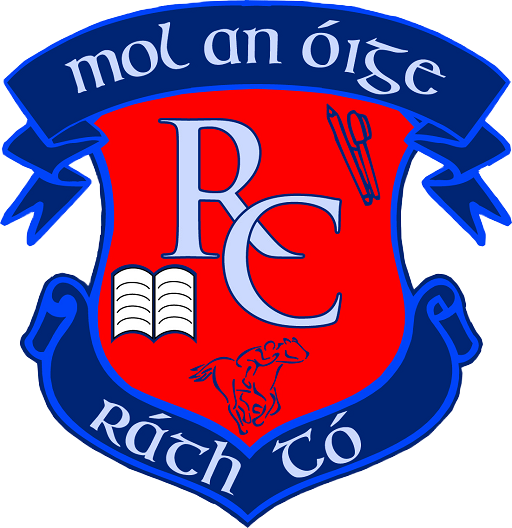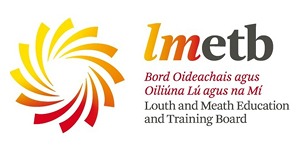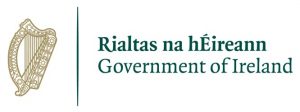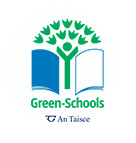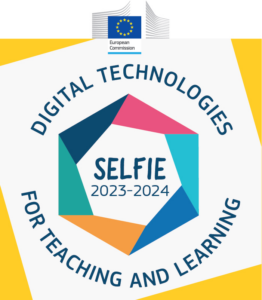Junior Cycle
Since 2014, a number of changes have begun taking place at Junior Cycle, following the introduction of the new Junior Cycle Framework. This outlines the Principles underpinning learning at Junior Cycle as well as 24 Statements of Learning and 8 Key Skills that are embedded in student learning in and across all subjects and in all their learning activities in school.
For reference, terminology that relates to the new Junior Cycle has been highlighted in bold. A glossary of these terms and what they mean in the new Junior Cycle can be found here.
Junior Cycle at Ratoath College
All students at Junior Cycle study the following core subjects:
- Gaeilge
- English
- Maths
- History
- Geography
- Science
- Either French or Italian
All students also study two of the following options subjects:
- Business Studies
- Classics
- Home Economics
- Engineering (formerly known as Metalwork)
- Wood Technology (formerly known as Woodwork or Materials Technology Wood)
- Music
- Graphics (fomerly known as Technical Graphics)
- Visual Art
All Junior Cycle students also study the CSPE short course over the three years of the programme as well as a short course called Digital Media Literacy (DML), completed in 1st and 2nd year.
For all these subjects and short courses, students complete a course of study outlined in the subject specification. Since 2014, subjects have been changing over on a phased basis to these new specifications and since September 2021, students follow these new specifications in all subjects and short courses.
Students also follow timetabled courses of study in Religious Education, Physical Education and Social, Personal and Health Education (SPHE) alongside their single timetabled Tutorial period every week.
Click below to view the subject specification for each subject and short course.
Core Subjects
Options Subjects
Short Courses
Other Subjects
Level 2 Learning Programme & PLUs
A Level 2 Learning Programme is for the very specific group of students with general learning disabilities in the higher functioning moderate and low functioning mild categories.
The Level 2 Learning Programme is based around Priority Learning Units (PLUs).
The PLUs focus on developing the basic social, pre-vocational and life skills of the students involved. There are five Level 2 PLUs:
- Communicating and literacy
- Numeracy
- Personal care
- Living in a community
- Preparing for work
Wellbeing
In line with the Junior Cycle Framework and the Wellbeing guidelines, the curriculum at Junior Cycle incorporates up to 400 hours of Wellbeing activities over the three years.
This includes subjects, such as PE, CSPE and SPHE as well as other activities and programmes that take place throughout First Year, Second Year and Third Year.
Assessment at Junior Cycle
Subjects are assessed on an ongoing basis by the student’s teacher, by Classroom Based Assessments (CBAs) and with an exam in June of Third Year. The grade awarded for the final exam includes 10% awarded for an Assessment Task completed by the student in class in the second half of Third Year. Short Courses are assessed on an ongoing basis by the student’s teacher and by Classroom Based Assessments (CBAs). There is no exam in June of Third Year for short courses.
Changes to Grades at Junior Cycle
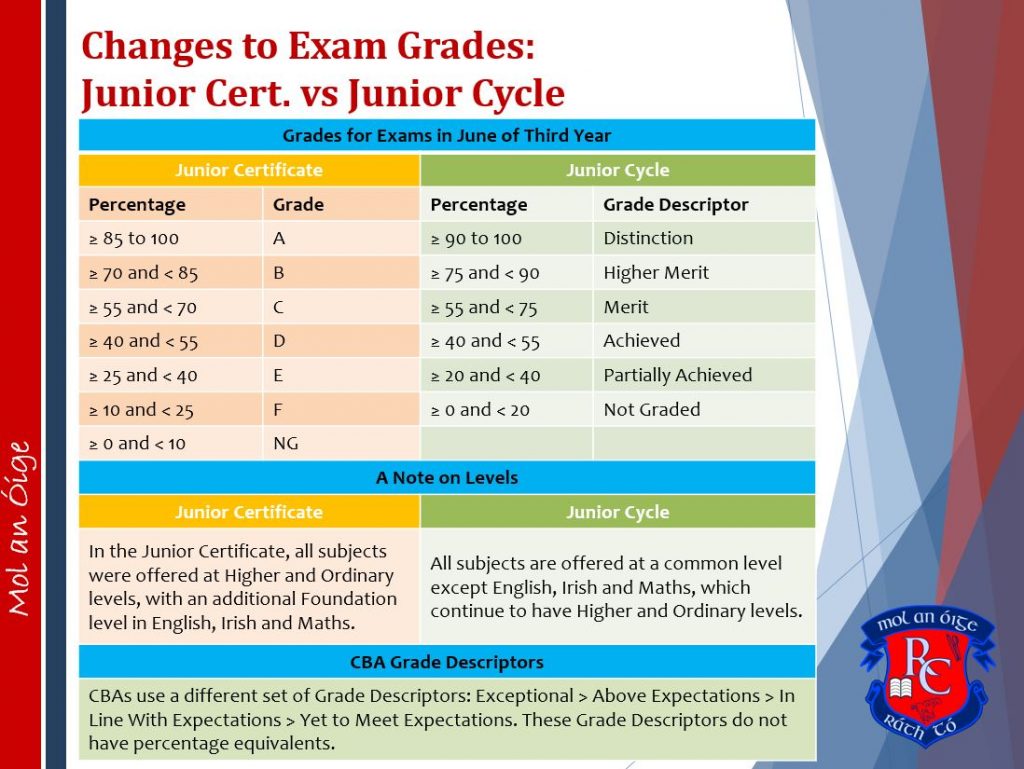
Other Areas of Learning at Junior Cycle
Students are encouraged to access Other Areas of Learning through, for example, involvement in extra-curricular activities.
Junior Cycle Profile of Achievement
At the conclusion of their three years of learning at Junior Cycle, each student receives a Junior Cycle Profile of Achievement (JCPA) that includes their final exam results and CBA Grade Descriptors for all subjects and short courses as well as details of their Other Areas of Learning.
More Information
More information about the changes at Junior Cycle can be found in the documents and websites below:

